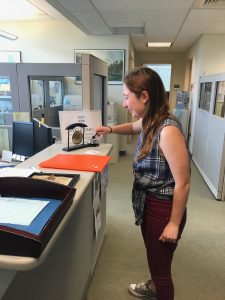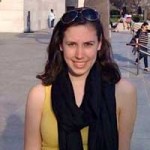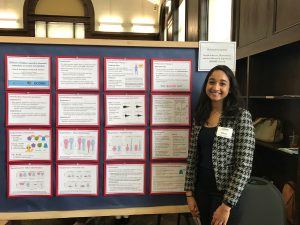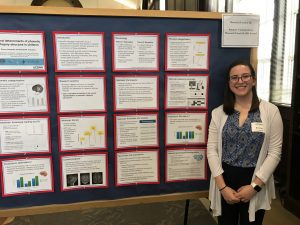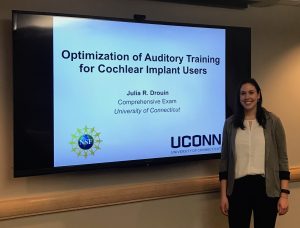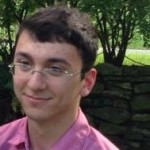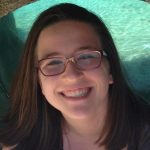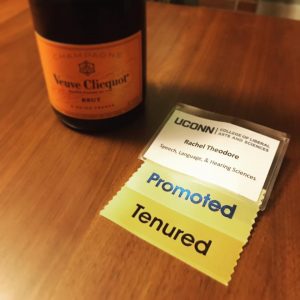 Congratulations to Dr. Theodore, who has been promoted to Associate Professor with tenure!
Congratulations to Dr. Theodore, who has been promoted to Associate Professor with tenure!
Author: rmt
Emily Opramolla submits Honors thesis
Julia Drouin receives CAPCSD Ph.D. Fellowship
Nikole Giovannone joins SLaP Lab as Jorgensen Fellow
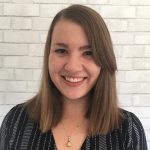 We extend a warm welcome to Nikole Giovannone, who will join the SLaP Lab as a Ph.D. student this fall. Nikole is currently an Honors scholar at Mount Holyoke College, working in the lab of Dr. Mara Breen. Nikole will join us as a Jorgensen Fellow. Recipients of the Jorgensen Fellowship represent the very best applicants to graduate programs at UConn, and we couldn’t be more excited to welcome her to our group!
We extend a warm welcome to Nikole Giovannone, who will join the SLaP Lab as a Ph.D. student this fall. Nikole is currently an Honors scholar at Mount Holyoke College, working in the lab of Dr. Mara Breen. Nikole will join us as a Jorgensen Fellow. Recipients of the Jorgensen Fellowship represent the very best applicants to graduate programs at UConn, and we couldn’t be more excited to welcome her to our group!
Divya Ganugapati presents at Frontiers
Emma Hungaski presents at Frontiers
Julia Drouin completes General Exam
M.A. defense: Stephen Graham
Dr. Theodore to serve as Associate Editor at Language and Speech
Dr. Theodore will begin serving as an Associate Editor at Language and Speech in April 2017.
Emma Hungaski receives SURF award
Emma has received a competitive SURF award from the UConn Office for Undergraduate Research. This award will provide a stipend for Emma to work in the SLaP Lab this coming summer. Emma’s project is titled “Neural determinants of phonetic category structure in children.” Congratulations!
